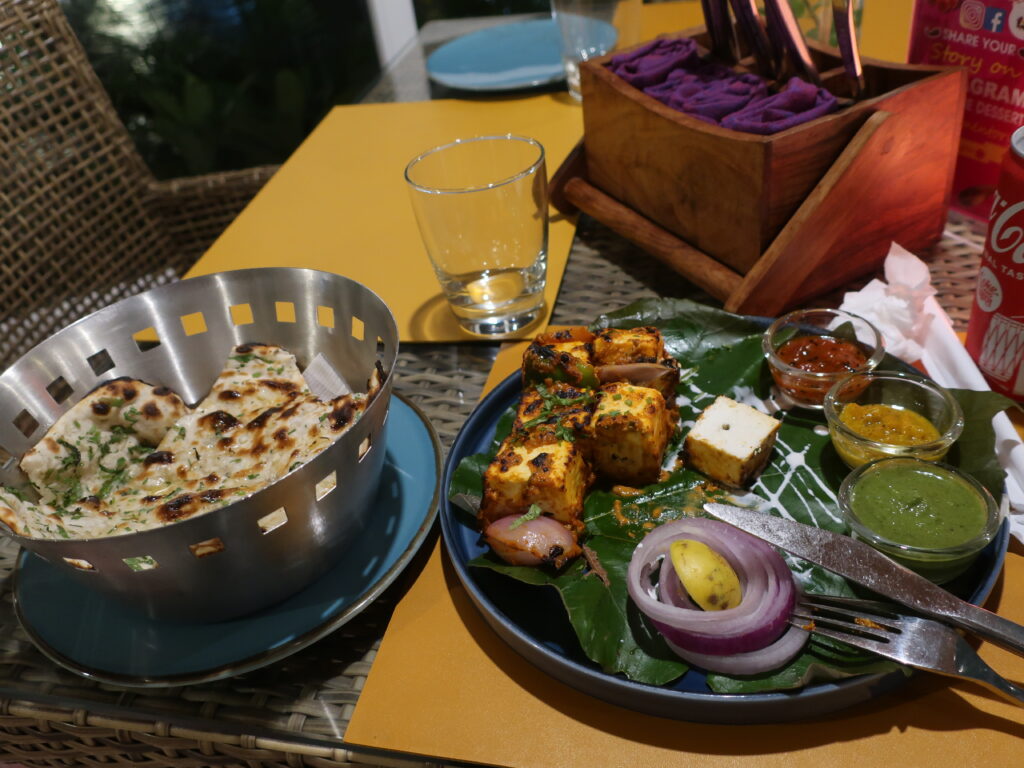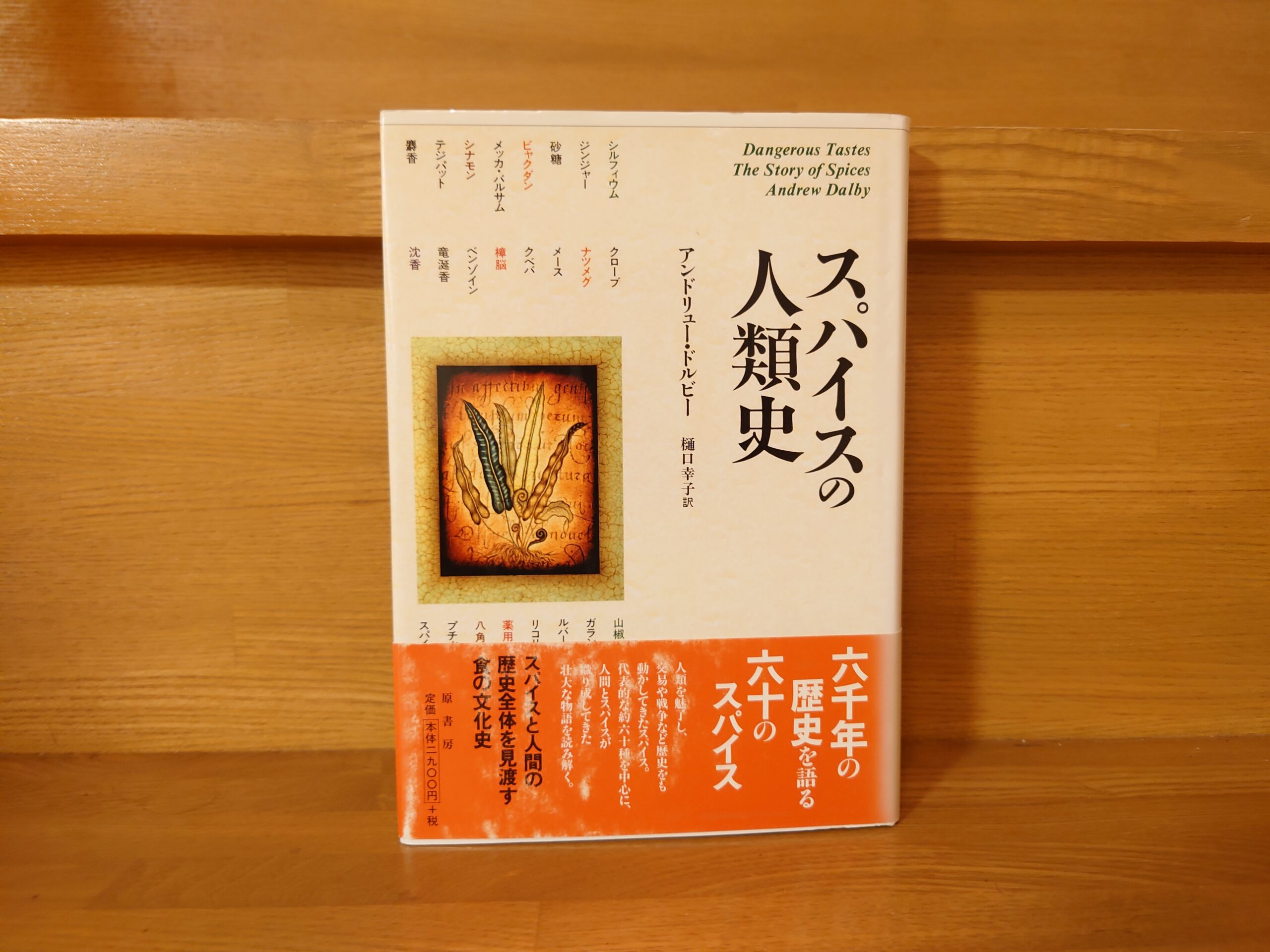A. Dolby, "The Human History of Spices" Summary and Comments - Recommended for the history of spices in India and Sri Lanka!
Introduced here is "A Human History of Spices" written by Andrew Dolby and translated by Sachiko Higuchi, published by Hara Shobo in 2004.
Let's take a quick look at the book.
Spices have fascinated mankind and have also moved the course of history through trade and war. This book tells a magnificent story of the interweaving of spices and humans, focusing on about 60 representative spices. A cultural history of food that looks at the entire history of spices and humans. Best Book Award in the English Division of the International Gourmet Association's "World Cookbook Competition" (2000). Best Book of the Year" by the Association of Food Researchers (2001).
AmazonProducts Page.
This work, "A Human History of Spices," is recommended to learn about the history of spices, which have had a huge impact on the history of the world.
Spices are an indispensable part of our diet.
When it comes to spices, India is the first country that comes to mind, and I recently visited India to experience the home of spices.
Unfortunately, however, I am not a big fan of spicy food. Even in Japan, I can hardly eat spicy food. Curry is also sweet.
I am sure you can all imagine what I went through in India, the spice paradise.

I can't eat spicy food at all. I told the guide, "I can't eat spicy food at all. I think spices are too harsh.
Moreover, on the fourth night after my arrival in India, I was attacked by severe vomiting and diarrhea, and I could no longer eat. Thus, my first visit to India turned out to be a hardship that could almost be described as fasting.
The guide said, "I have guided many Japanese people in the past, but I have never seen such a weak person. Mr. Ueda, you are too weak (laugh). I had to laugh at this. Fortunately, I was able to recover in the second half of the trip thanks to a mysterious injection given to me by a doctor, so it is a funny story now.
You might say that spices are my natural enemy. Everywhere I went in India, I could smell the spices, and I was almost traumatized by the smell. Even Kentucky was too spicy for me! Even Kentucky, which I thought was a universal civilization, was swallowed up by the Indian spice civilization! I was shocked by this.
Now, my personal story continues, but spices are an inevitable part of the history of India and Sri Lanka.
For me personally, spices are my natural enemy, but as the saying goes, "If you know your enemy and know yourself, you will never be defeated in a hundred battles. It is important to know the spices that you are not good at. If I am going to learn about India and Sri Lanka, I want to learn about them! That is how I came to pick up this book.
The author states the following about this book in the "Foreword".
This book is an attempt to explore the history of spices and flavors. In other words, it is a story about the fascination of spices that has attracted us since ancient times, and the land and sea routes by which they were transported in the process of developing the spice trade. As we look at the various aspects of the spice trade, from the conditions in the various spice-producing regions of the world to how the global trade network as we know it today was established, we begin to understand the significance of spices in the history of mankind. The pleasures and health benefits that spices provide, the greed they cause, the wars and tyranny that sometimes result from them, and so on. It is a story that should intrigue anyone interested in history, especially the history of food. There have been many books on the history of the modern spice trade, and several pioneering studies on the use of spices and flavors in Western antiquity have appeared. However, this book should be the first attempt to go back to the beginning and focus on the process by which mankind's knowledge of spices spread throughout the world.
Hara Shobo, Andrew Dolby, translated by Sachiko Higuchi, The Human History of Spices, p. i
The book is unique in that it does not merely look at each spice, but relates it to the flow of world history.
It is exactly the book I was looking for.
It is very exciting to learn not only the basic information about where each spice originated and when it was first cultivated, but also the relationship between the spice and humans.
This work is especially recommended for those interested in history and culture, as well as for those who love spices.
Even I, who am not a fan of spices, was intrigued by this work, so I think that if you like spices, you will enjoy it even more.
I would highly recommend this work.
This is "A. Dolby, "The Human History of Spices" - Recommended for learning about the history of spices in India and Sri Lanka! was.
Next Article.
Click here to read the previous article.
Related Articles







































